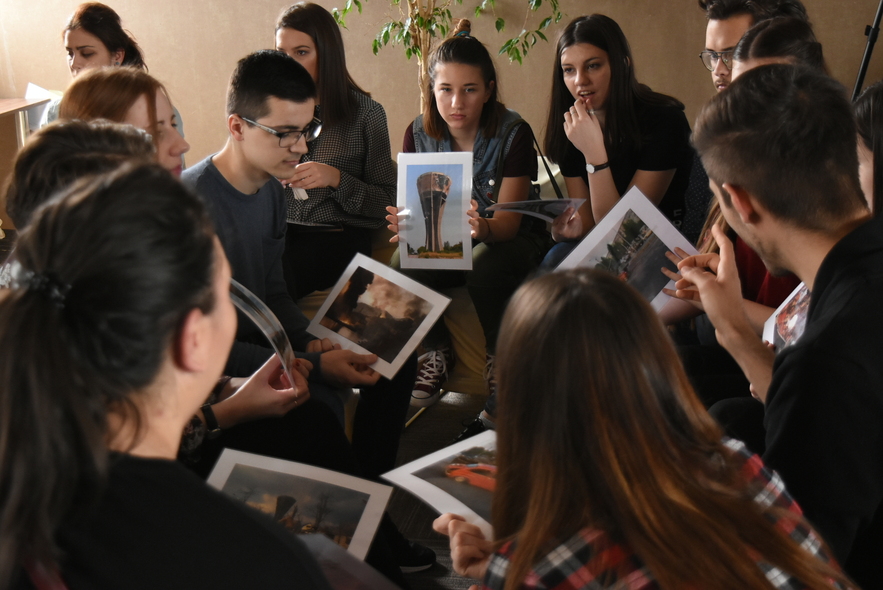The Youth Initiatives for Human Rights in Croatia and Serbia organized a Transitional Justice School in the period of March 25-28, 2021 for 30 young people from Serbia and Croatia with the support of the United Nations Development Program (UNDP) and the UK Government.
During the first day of the program, Marijana Toma held a lecture about the basics of transitional justice, introducing the participants to the historical development of that concept, its goals, as well as mechanisms, such as criminal justice, truth commissions, reparations, and institutional reform, using the examples of Latin American countries, Rwanda, Spain, and Canada.
On the same day, Ivan Jovanović from UNDP held a lecture about criminal justice as a transitional justice mechanism and considered the work and the legacy of the International Criminal Tribunal for the former Yugoslavia (ICTY). He talked about the importance of criminal justice within transitional justice, how the ICTY started operating and why, and the current projects at the International Residual Mechanism for Criminal Tribunals (IRMCT). Beyond that, he spoke about the first judgements of the court.
The last lecture of the first day was held by Jelena Đureinović from the University of Vienna as a representative of the Humanitarian Law Center. The lecture focused on memorialization with an emphasis on preventing the reoccurrence of crimes, and it emphasized street names, monuments and the role of memory activism in the fight against revisionism.
The next day started with a lecture by Nevena Šrkbić Alempijević, a professor at the Faculty of Humanities and Social Sciences at the University of Zagreb. She spoke about the concept of social memory, as well as the relationship between individual and collective memory. Her lecture raised important issues, such as whether memory can be social, how it is transmitted, what the relationship between the politics of memory and culture of memory is, as well as why societies forget.
The second lecture of the second day was held by Nikica Torbica, a historian and activist from DKolektiv in Osijek, who talked with the participants about how and why we learn history, what official history is and how it is used in schools, how the Others are treated in education about conflicts in Croatia, and what is the solution for a nationalist interpretation of history.
The last lecture of the second day was held by Lejla Gačanica, a legal advisor and an independent researcher, who spoke about reparations. The participants had the opportunity to learn about the concept of reparations, its forms and types, and about the concept of civilian war victims through examples of reparations in Serbia, Croatia, and Bosnia and Herzegovina. She also discussed the denial of war crimes and genocide, as well as the concept of vetting.
On the last day of school, the participants had the opportunity to listen to a lecture by Mina Damnjanovič, a feminist activist and political scientist, who spoke about wartime rape. Wartime rape and sexual enslavement were recognized as crimes against humanity for the first time in history due to the ICTY judgements. She talked bout the feminist definition of sexual violence, UN and Geneva conventions, as well as regional legislature related to this topic. She also focused on Women’s Courts.
At the end of the school, we had the great honor and privilege to speak with Jasmila Žbanić, a director of the first feature film about the genocide in Srebrenica, “Quo Vadis, Aida?”. During the conversation, we talked about youth perceptions of the film, reactions to the film in Serbia, and her motivation to work on a film about Srebrenica. Branka Vierda from the Youth Initiative for Human Rights in Croatia moderated the talk. The recording of the conversation is available on the Facebook page of the YIHR Serbia office.
We would like to thank all the participants and lecturers for their time, presence, and knowledge, which they contributed to make the Transitional Justice School successful!
